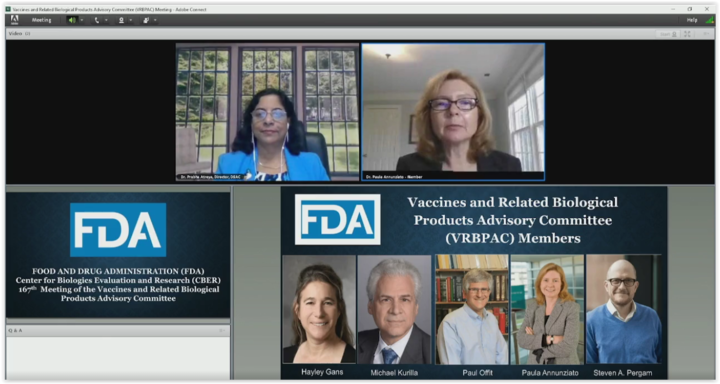KUALA LUMPUR, Sept 23 — The United States’ Food and Drug Administration (FDA) has given emergency-use authorisation (EUA) of a booster of Pfizer-BioNTech’s Covid-19 vaccine for individuals aged 65 years and older.
The FDA’s approval for a Pfizer booster jab also covers people aged 18 and 64 who are at “high risk of severe Covid-19”, as well as individuals in that age group whose frequent exposure to the virus at work puts them at high risk of severe Covid-19.
“After considering the totality of the available scientific evidence and the deliberations of our advisory committee of independent, external experts, the FDA amended the EUA for the Pfizer-BioNTech Covid-19 Vaccine to allow for a booster dose in certain populations such as health care workers, teachers and day care staff, grocery workers and those in homeless shelters or prisons, among others,” acting FDA commissioner Dr Janet Woodcock said in a statement yesterday.
The FDA’s approval is for a single booster dose to be administered at least six months after completion of the primary vaccination series of two doses.
Pfizer previously applied to the FDA seeking approval of a single booster jab for people aged 16 years and older.
The FDA cited real-world data from the US’ Centers for Disease Control and Prevention (CDC), the United Kingdom, and Israel, besides data from certain participants in the original clinical trial of the Pfizer vaccine, assessing the immune response of about 200 participants aged 18 to 55 who received one booster dose about six months after the second jab.
“The antibody response against SARS-CoV-2 virus one month after a booster dose of the vaccine compared to the response one month after the two-dose primary series in the same individuals demonstrated a booster response,” said the FDA.
The FDA also reviewed an analysis by Pfizer between July and August this year that found Covid-19 incidence to be higher among participants who completed vaccination with two doses earlier, compared to those who completed inoculation later.
“The FDA determined that the rate of breakthrough Covid-19 reported during this time period translates to a modest decrease in the efficacy of the vaccine among those vaccinated earlier.”
The most commonly reported side effects by clinical trial participants who received a booster shot were pain, redness and swelling at the injection site, as well as fatigue, headache, muscle or joint pain and chills. “Of note, swollen lymph nodes in the underarm were observed more frequently following the booster dose than after the primary two-dose series.”
The FDA’s emergency authorisation of Pfizer’s booster shot came after the agency authorised last August 12 a third dose of the vaccine in a three-dose primary series in certain people with weak immune systems aged 12 years and older.








